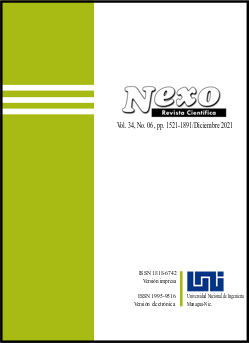University digital literacy in engineering students times of pandemic
DOI:
https://doi.org/10.5377/nexo.v34i06.13117Keywords:
digital literacy, technology, internet, virtuality, covid-19Abstract
The purpose of this study is to contextualize the digital literacy of university students within the current pandemic, taking into account the development of skills and challenges of this new digital era. Analyze, in addition, its scope and limits for the development of students, who continue with their professional studies despite confinement. It was a quantitative-descriptive study, with sociodemographic variables (age, sex, time of connectivity); The sample consisted of engineering students from a public university: 213 men (64.5%) and 117 women (35.5%) from the fifth cycle of the degree. The Area instrument (2014) was used. Digital literacy and the formation of citizenship of the XXI century. We conclude that digital literacy will continue to expand more and more, since education is based on virtuality due to the covid-19 pandemic, so that this modality will continue to expand so that students continue with their higher studies normally, developing technological knowledge.
Downloads
2224
Downloads
Published
How to Cite
Issue
Section
License
Copyright (c) 2021 Universidad Nacional de Ingeniería

This work is licensed under a Creative Commons Attribution 4.0 International License.
The authors who publish in Nexo Scientific Journal agree to the following terms:
- Authors retain the copyright and grant the journal the right of the first publication under the license Creative Commons Attribution License, which allows others to share the work with a recognition of the authorship of the work and the initial publication in Nexo Scientific Journal.
- Authors may separately establish additional agreements for the non-exclusive distribution of the version of the work published in the journal (for example, in an institutional repository or a book), with the recognition of the initial publication in Nexo Scientific Journal.
- Authors are allowed and encouraged to disseminate their works electronically (for example, in institutional repositories or in their own website) before and during the submission process, as it can lead to productive exchanges, as well as earlier and greater citation of published works.










